Fiji’s strongman returns to power, but can the two-time coup leader be trusted?
Fiji’s former coup leader Sitiveni Rabuka is back in power, promising to stand up to Beijing in the Pacific and not take vengeance on his old enemies at home. Can he be trusted?
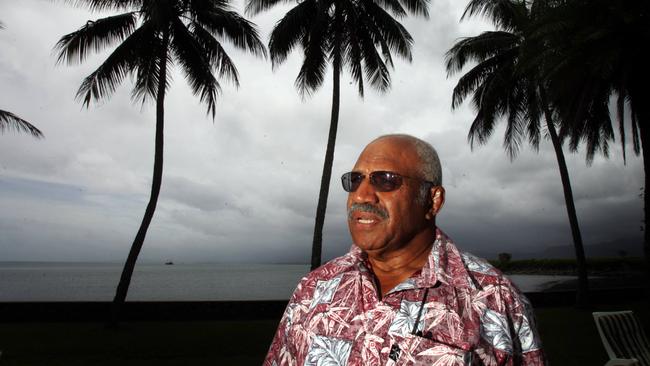
Little more than 10 years ago, Fijian coup leader Sitiveni Rabuka was selling coconuts to support his family, stripped of his pension by arch rival and then-prime minister Frank Bainimarama, who delighted at the chance to humiliate a hated foe.
Today the former soldier - “Rambo” to his admirers; “the Snake” to his nemesis - is back in the Prime Minister’s chair after an extraordinary turn of events that looks set to shift the balance of power in the South Pacific.
Rabuka is muscling up … not in pursuit of revenge against his old enemy, he says, but to push back against his island nation’s new “friend” – an expansionist China intent on retaining the hold it gained over Fiji under the pro-Beijing Bainimarama.
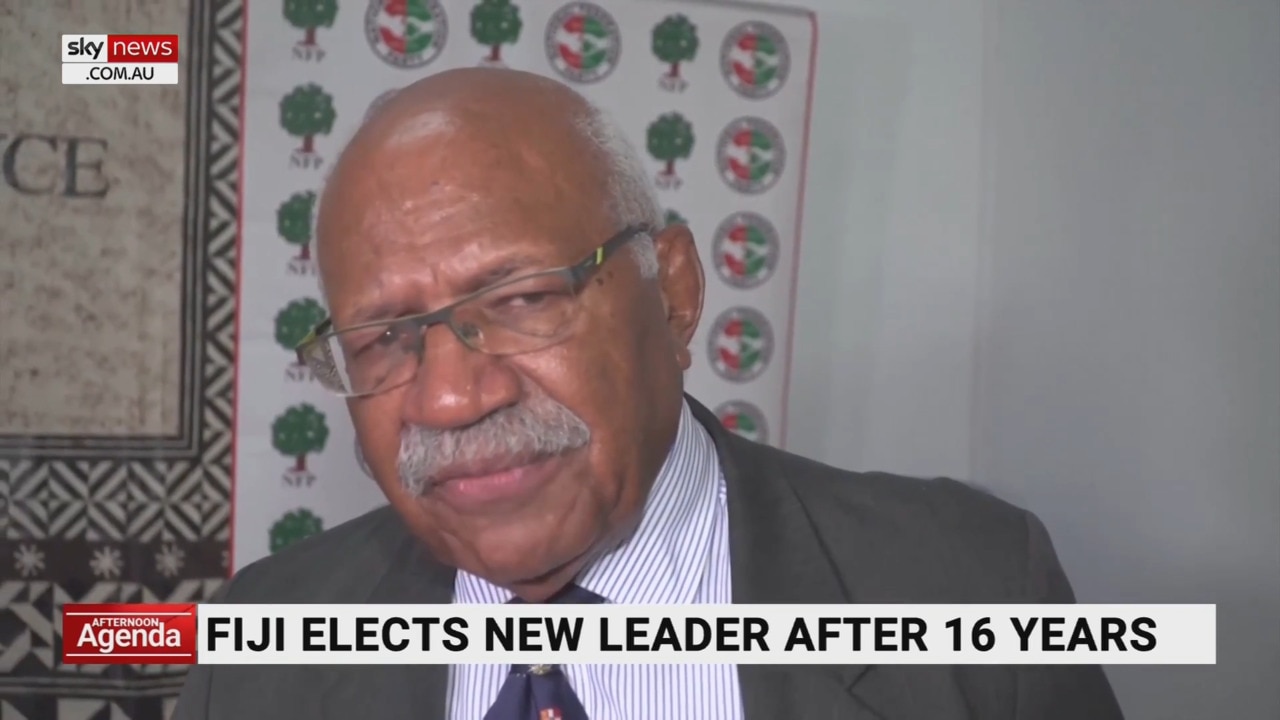
In his first major foreign interview as Prime Minister, Rabuka told The Australian last week: “There is an increasing effort by China to consolidate its influence and increase it, and I believe it is always safer to go with the people you know better. In my case, I know the Australians … better than I know China.”
The pledge to stand firm against Beijing’s strategic ambitions is heartfelt and real.
The promise to play nice with his predecessor may be short-lived.
“I’m being generous because it is my nature,” Rabuka says, pointing out that Bainimarama and his family have been allowed to stay on in the official PM’s residence more than a month after losing the election.
Yet the scars of his feud with Bainimarama, the former navy commander who took power in his own coup in 2006, run deep.
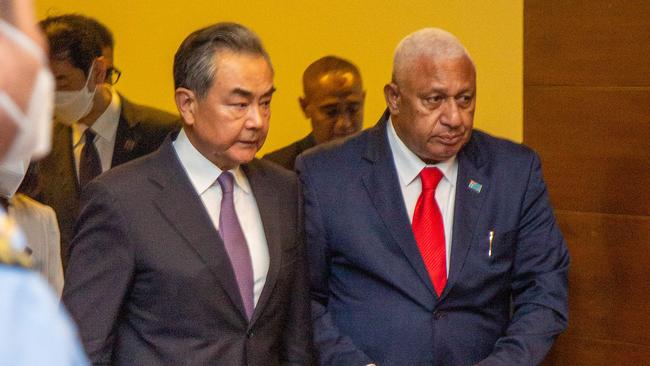
Rabuka nearly lost his home when Bainimarama removed his pension and entitlements.
He was deeply in debt and had to sell possessions.
“I did go and sell coconuts,” he admits. “I went to a village and bought coconuts from the people there and brought them in truckloads to sell to food processors here in Suva. And that was a big help to our family income.”
Now the tables are turned.
Rabuka has ordered a police investigation into the actions of Bainimarama and his right-hand man, former attorney-general Aiyaz Sayed-Khaiyum, during the last days of the December election. They are alleged to have conspired with Fiji’s then police commissioner, Sitiveni Qiliho, to bring the army on to the streets using fabricated claims of racial violence in a bid to prevent a Rabuka victory.
“I have called on the police to carry out investigations if they are not ready to come forward or they are incapable of bringing forward evidence that what they said was really true,” Rabuka says.
Rabuka says the faked claims were designed to spark confrontation, disrupting the vote count and formation of the fragile coalition that now holds power.
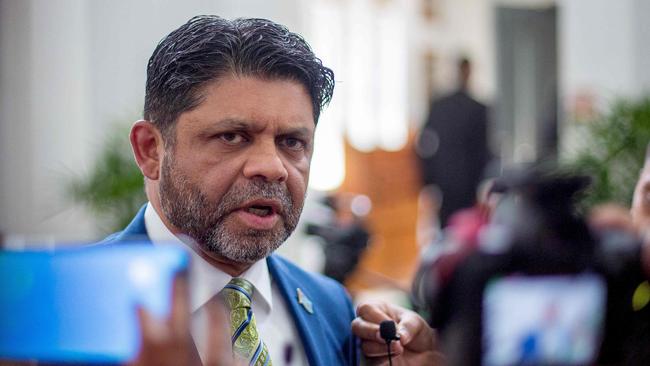
Asked directly whether his predecessors should be prosecuted, Rabuka says: “I believe so, because it could have caused a lot of ill feelings and that would have manifested in physical activities.”
Any prosecution will be handled independently, he says, and there won’t be any return to the days of the archetypal Fijian strongman, embodied by the instigator of two military coups in 1987, though later democratically elected as prime minister from 1992 to 1999.
Already, Rabuka is unwinding draconian laws introduced by the Bainimarama regime that muzzled local media and stifled free speech. One of the country’s main newspapers, the Fiji Sun, was an unquestioning mouthpiece for the Bainimarama government, rewarded with rich advertising contracts that will now be closely investigated. Others were cowed into silence by laws that make it illegal to publish material “against the public interest or order”, with editors liable for two years’ prison and a $25,000 fine.
This week, Rabuka will take his legislative agenda to parliament, which he promises will revoke those laws.
The previous regime’s abuse of the institutions of state will be harder to undo.
Fiji’s highest courts were used as political weapons by Bainimarama and Sayed-Khaiyum, who engineered the dismissal of the government’s chief lawyer, solicitor-general, Sharvada Sharma, for reasons they never explained, triggering a constitutional crisis.
The regime also launched legal proceedings against one of its most ferocious critics, solicitor and human rights advocate Richard Naidu, simply because he jokingly pointed out a spelling error in a judgment of the Fiji High Court.
The judgment had wrongly used the word “injection”. Naidu wrote in a social media post: “Maybe our judges need to be shielded from all this vaccination campaigning. I’m pretty sure all the applicant wanted was an injunction.”
For that, he was convicted of contempt of court. Sayed-Khaiyum was the sole prosecution witness. Naidu was not permitted to cross-examine him.
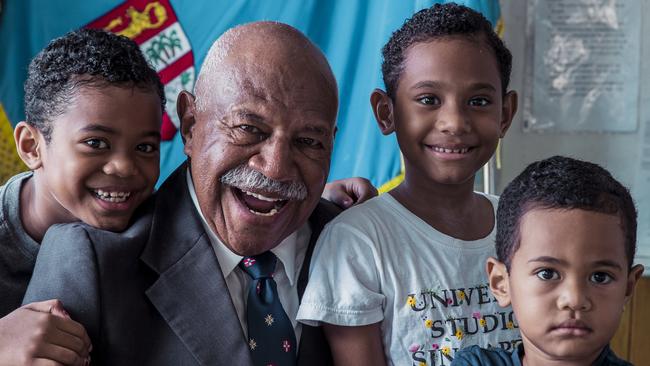
The judge who convicted Naidu resigned last week “on medical grounds”.
Rabuka will not be drawn on the case.
“We will observe the separation of power between the executive and the judiciary and I will not allow the executive arm of my cabinet or cabinet ministers to interfere with the judiciary and its systems,” is all he will say.
That, however, would not preclude Fiji’s new attorney general Siromi Turaga applying to overturn the blatantly political conviction on appeal.
Arthur Moses SC, a former president of the Law Council of Australia says it is open to an attorney general to apply to set aside the contempt finding or ask that no sentence be imposed.
“This would be in accordance with the duty of an Attorney-General to the administration of justice and would be a strong signal of adherence to the rule of law in Fiji,” Moses says.
But Rabuka is walking a tightrope and his hold on office is tenuous. To form government, his People’s Alliance Party is in coalition with the Indo-Fijian-based National Federation Party and mainly Christian Social Democratic Liberal Party, giving it a majority of just three seats. But already the latter is threatening to walk out if it doesn’t get the spoils of office it was promised.
Will Fiji’s two-time coup leader accept that if the coalition falls apart, it would be necessary to go back to the people in another election? “That is an option available to the prime minister if he is defeated in the house in a no-confidence motion – but it will be costly,” Rabuka says cautiously. “Hopefully we don’t get there.”
It won’t be just the seething Bainimarama eager for yet another twist in the wild ride that is Fijian politics.
Beijing, too, will be watching with interest.


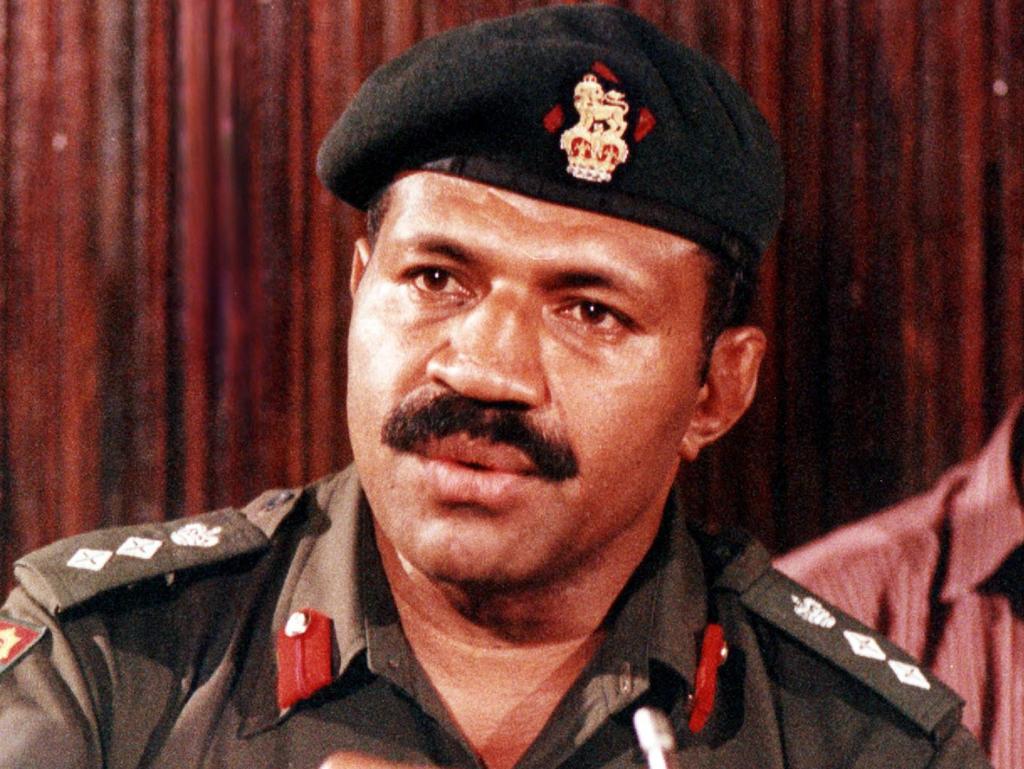



To join the conversation, please log in. Don't have an account? Register
Join the conversation, you are commenting as Logout